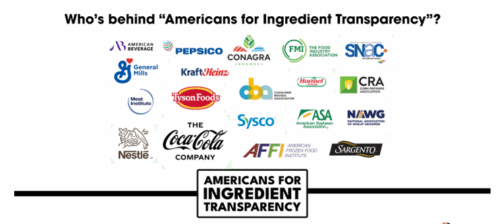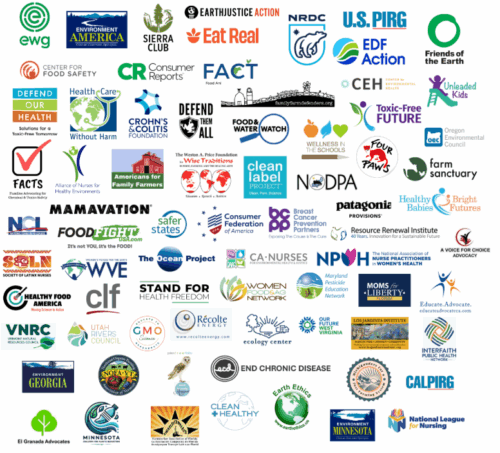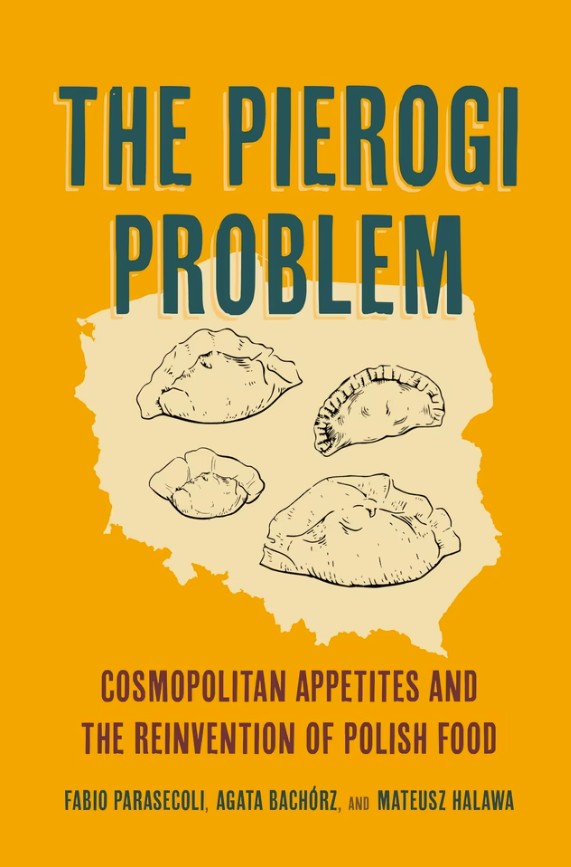Big Food wants federal preemption (blocking) of tougher state standards for chemicals in food
I first read about this in Food Business News: New coalition targets ‘ingredient transparency’
Major food, agricultural and consumer products trade groups and companies have given their support to Americans for Ingredient Transparency (AFIT), a new policy advocacy coalition seeking a uniform national standard for ingredient transparency…With many states now enacting or considering their own ingredient transparency laws, the goal is to avoid the emergence of “an ever-expanding patchwork of disjointed food, beverage and personal care regulations” that would sow confusion among US consumers, the coalition said.
Specifically, AFIT said it will focus on reform of the generally recognized as safe (GRAS) process, front-of-package labeling and QR codes….The group also said it seeks to amend the Federal Food, Drug and Cosmetic Act to establish the US Food and Drug Administration as “the sole entity setting the floor and ceiling for regulations on the marketing and sale of foods, beverages and over-the-counter products in the United States.”
Translation: The coalition wants a weak federal law to preempt (block) tougher state standards for GRAS qualification and front-of-pack labels.
US Right to Know explains what this is really about: Americans for Ingredient Transparency: Product defense for unhealthy ultra-processed foods. It shows:
Sarah Sorscher in Food Safety News calls this out for what it is: a front group aiming to weaken food safety rules.
I’m for this group.

Which side are you on?
Let your congressional representatives know.
Now.





